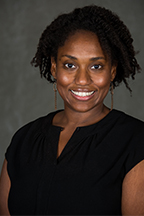A conversation between Elizabeth Yost Hammer and Stephen Linn Chew on the importance of student trust.

Stephen L. Chew has been a professor of psychology at Samford since 1993. He served as department chair from 1993 to 2019. Trained as a cognitive psychologist, he is a nationally recognized expert on the cognitive basis of effective teaching and student learning. He conducts original research on topics such as using examples in teaching, the impact of cognitive load on learning, the importance of student curiosity and trust in the teacher, and the tenacious misconceptions that students bring into the classroom. He also works to translate cognitive research into accessible knowledge for teachers and students. Dr. Chew is the creator of a groundbreaking series of YouTube videos for students on studying effectively based on cognitive research. The videos have received millions of views and are used worldwide at educational institutions, from high schools to professional schools.
Samford University
Links for this episode:
- "It Is More Important for Students to Trust Us Than to Like Us" by Stephen Chew
- Learning in Pandemic Times (video, 24 min.)
Transcript:
Coming soon!


 A conversation with
A conversation with 
